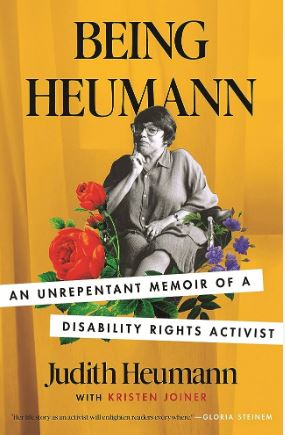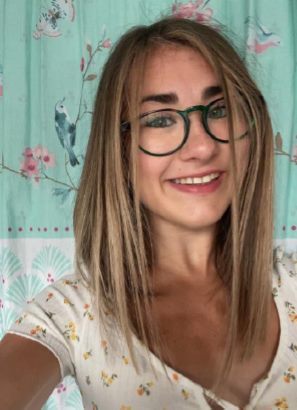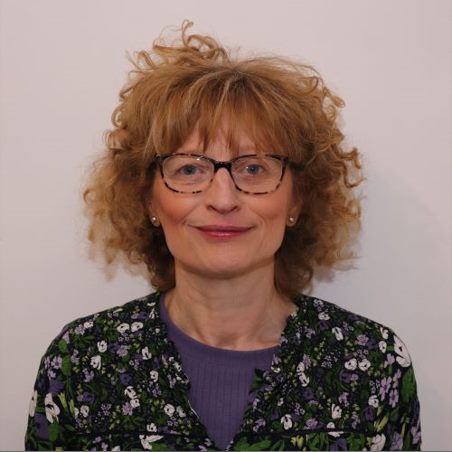International Day of People with Disabilities (Sunday 3rd December)
IDPD has been celebrated annually since 1992 and is a United Nations-sanctioned awareness day, aiming to raise awareness of the challenges faced by people with disabilities, as well as celebrate and promote their rights, wellbeing and contributions to local communities. 16th Nov - 16th Dec also marks Disability History Month, which was chosen to encompass this awareness day, as well as World AIDS Day (1st Dec) and Human Rights Day (10th Dec).
To mark the day, the Oastler Building will be lit purple on Monday 4th (to maximise visibility for staff, students and visitors), as the colour purple is now widely acknowledged to be associated with disability-related campaigns, thanks to PurpleSpace.
For the first time, the Disability Pride flag is also being flown outside St Paul's on Monday 4th to mark International Day of People with Disabilities. Click here to find out more about the Disability Pride flag and what it represents!
Event on Campus! Disability History Month Book Club

Date and time: Wednesday 13th December, 12:15pm-1pm
Location: SB3/10a (Library Seminar Room)
Click here to request a calendar invite to the session
Join our Disability History Month Book Club, held in partnership with the Disabled Students' Network, exploring Chapter 1 of ‘Being Heumann: An Unrepentant Memoir of a Disability Rights Activist’ by Judith Heumann, with Kristen Joiner.
Click here to read a digitised version of Chapter 1 ahead of the session!
Disability, Childhood and Youth
Disability History Month's theme in 2023 is 'Disability, Childhood and Youth', focusing on the disablement of children and young people in the past and present, by stigma, stereotypes, and socially created barriers.
UKDHM follows the social model of disability, which believes people are disabled by barriers in society, not by their impairment or difference. Barriers might be something physical (like buildings not having accessible toilets), or ingrained attitudes in people (like assuming a disabled person cannot do something), and these barriers are what makes a person's life more difficult. This contrasts to the medical model of disability that typically focuses on what may be 'wrong' with someone, instead of what the person might need to help. The social model of disability steers away from this mindset, instead focusing on breaking down socially created barriers and providing what people need to gain independence and control of their lives.
Members of our Disabled Staff Network and Neurodiversity Staff Group have kindly shared personal reflections on, and letters to their younger selves to celebrate and mark the theme of Disability, Childhood and Youth.

Georgia Vine (she/her), Chair of the Disabled Staff Network
Letter to My Younger Self
Dear Georgia,
Being a disabled child is very hard, the world of disability doesn’t come with any instructions it's just left for you and your family to navigate its ableist structures. I know this was hard for your parents at the beginning, their world had turned upside down when you got your diagnosis of cerebral palsy without any warning. Now, you’re coming into later childhood and teenage years you’re starting to recognise these flaws for yourself. Yet, you possibly have little understanding of these flaws, as I said these flaws are due to ableist structures and they don’t just affect you but affect every disabled person in the world in some areas more than others.
Click to read the rest of Georgia's full piece: Letter to My Younger Self - Georgia Vine

Mary Maclean, Senior Lecturer in Adult Nursing
Reflections on Childhood
On looking back at my childhood and my school education, l am astounded at where l am now.
My earliest memories of school were standing in the playground watching other children play. I was viewed as painfully shy but l wonder if even at that age l recognised that l was different to most children and maybe other children thought so too. There was also the fact l was clumsy and lacked coordination. I remember managing to trip up my classmate and myself in the three-legged race. Needless to say, her dissatisfaction in her poor choice of race partner was apparent. This was a prevailing theme throughout primary and high school and l was always the last to be selected for any sports teams either in PE or the playground. Often l was the reserve or placed in a position where l was unlikely to have contact with the ball. I even remember boys avoiding me as their dance partner for our traditional Scottish country dancing lessons due to me trampling on their feet. This news soon spread fast amongst them.
Click here to read Mary's full piece: Childhood Reflections - Mary Maclean
Disabled Staff Network and Neurodiversity Staff Group
Our Staff Networks provide a safe space for staff sharing a characteristic or identity to come together, discuss mutual issues, access peer support and provide direct feedback to the University on policies and projects. Networks also coordinate key events in the academic calendar with the EDI team.
To find out more about this network including future meeting dates, please contact Georgia Vine (Chair).
In July 2023, we launched a Neurodiversity Staff Group as a branch of the Staff Disability Network for staff members who identify as neurodivergent (e.g. Specific Learning Differences (Dyslexia, Dyspraxia, Dyscalculia), AD(H)D and Autism Spectrum Conditions).
The Neurodiversity Group is Co-Chaired by Simon Kelly and Erika Montgomery. If you would like to join, please email the EDI team.
